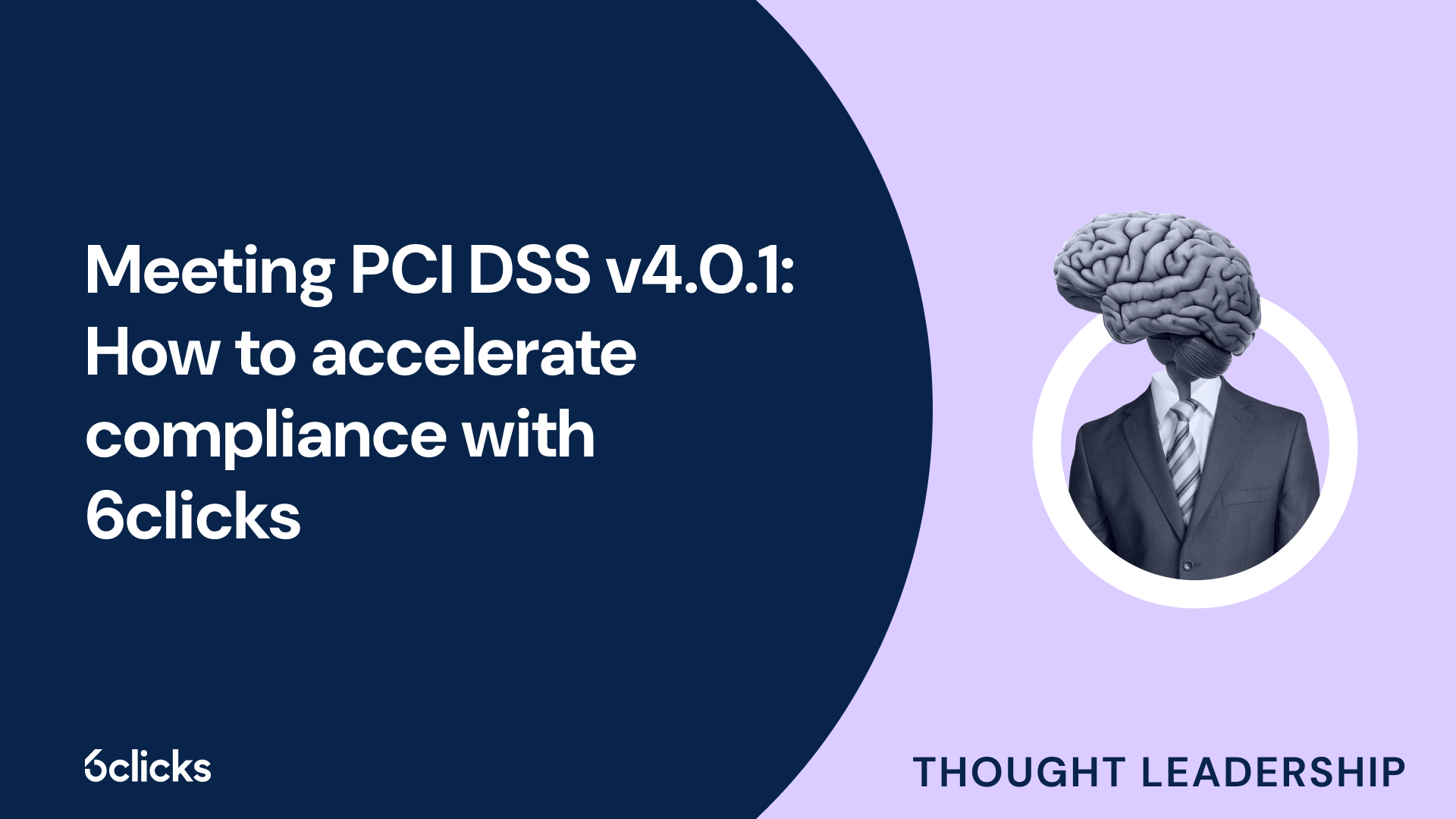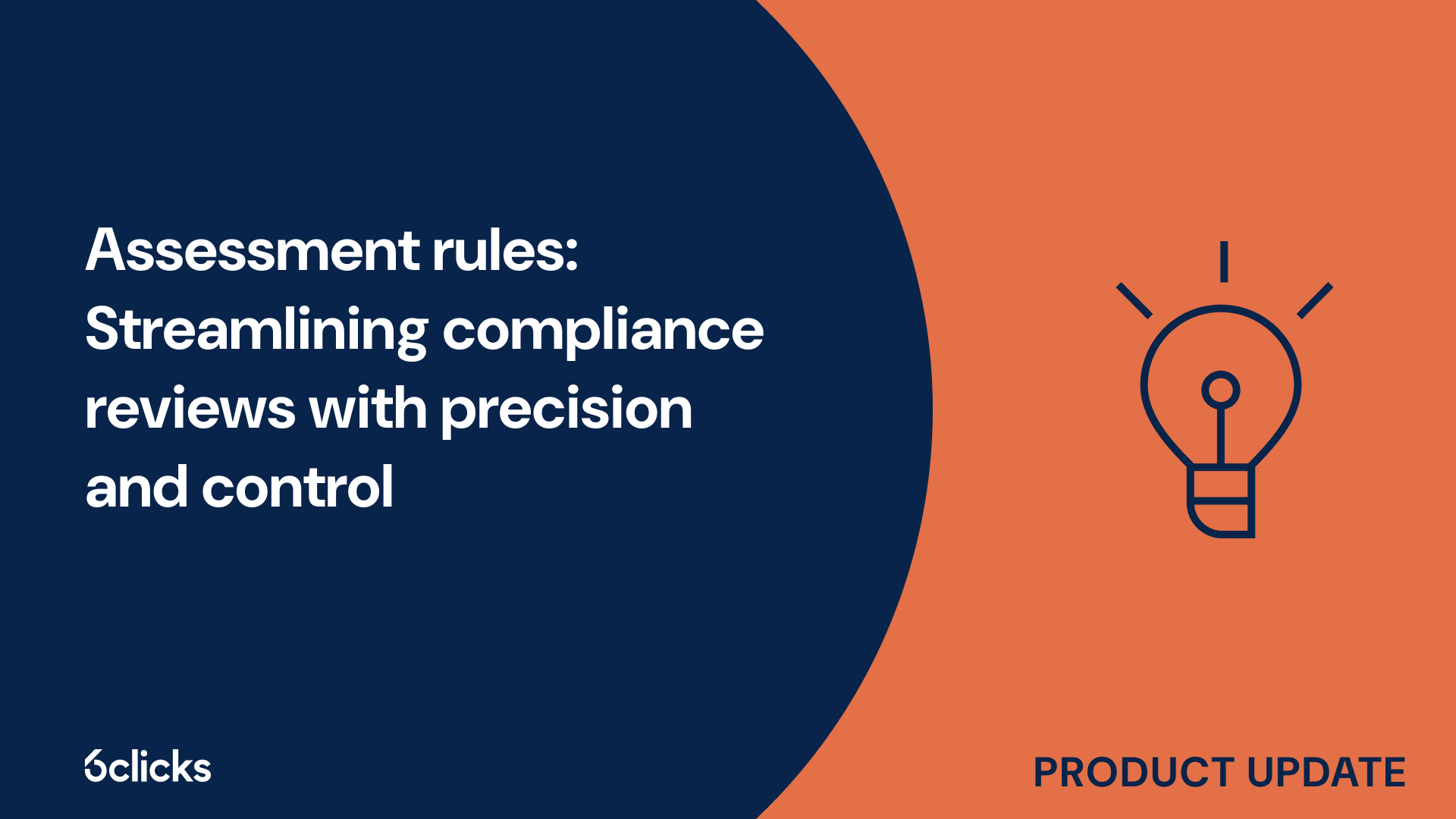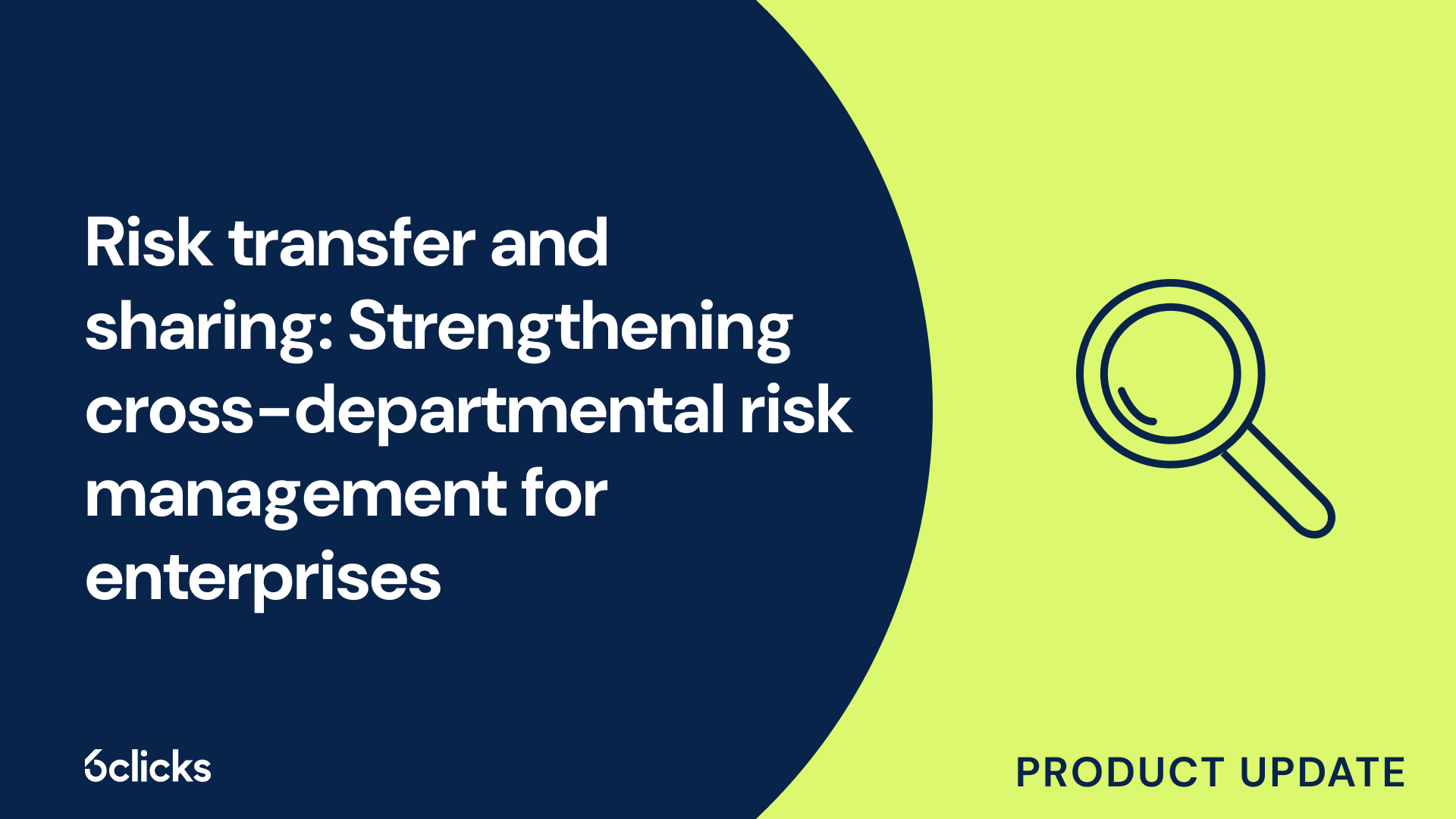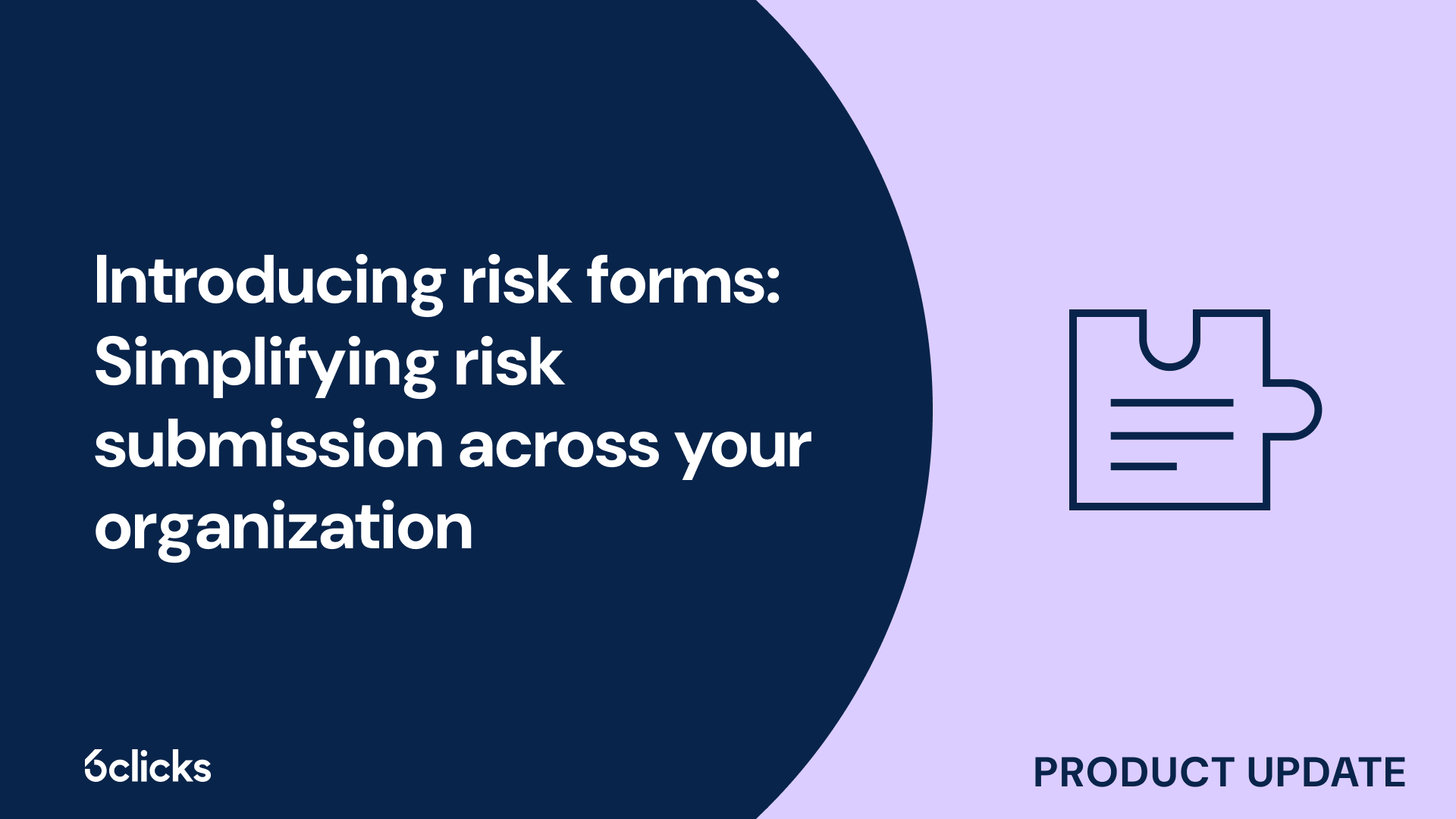The GRC buyer’s guide for 2025: Building resilience with AI-powered, federated solutions
Discover the ultimate GRC buyer's guide for 2025! Uncover how AI-powered, federated solutions transform compliance and security management for industries like government, aerospace, banking, and more. Learn about centralized control, continuous compliance, and advanced cyber GRC capabilities. Download now!
-1.png?width=200&height=249&name=Group%20193%20(1)-1.png)
The GRC buyer’s guide for 2025: Building resilience with AI-powered, federated solutions
What is the ENISA?
ENISA, which stands for the European Union Agency for Network and Information Security, is a regulatory agency that plays a crucial role in promoting and ensuring the security of Europe's network and information systems. Established in 2004, ENISA aims to support EU member states in developing their capabilities and coordinating their efforts to prevent and respond to cybersecurity incidents effectively. ENISA works closely with various stakeholders, including government agencies, businesses, and academia, to provide expert advice, guidelines, and operational support in areas such as risk management, incident response, and cybersecurity awareness. The agency also facilitates information sharing and collaboration among EU member states to enhance their collective cybersecurity resilience. By fostering cooperation and promoting best practices, ENISA contributes to safeguarding the digital economy and protecting Europe's citizens and businesses from cyber threats.
What does the acronym ENISA stand for?
ENISA stands for the European Network and Information Security Agency. As the acronym suggests, ENISA is an agency responsible for network and information security in Europe. Its primary role is to support the European Union (EU) member states in enhancing their cybersecurity capabilities.
ENISA was established in 2004 and is headquartered in Greece. The agency operates independently, collaborating with stakeholders from both the public and private sectors to ensure a safer digital environment for Europe.
With cyber threats becoming increasingly sophisticated and prevalent, ENISA plays a vital role in promoting cybersecurity awareness, preparedness, and response across the EU. It provides expertise, advice, and technical assistance to member states, as well as conducts research, analysis, and risk assessments to identify potential threats and vulnerabilities.
By fostering cooperation among EU member states and other relevant organizations, ENISA aims to develop effective strategies, policies, and guidelines to safeguard Europe's networks and information systems. The agency works towards creating a trusted and resilient cybersecurity framework, securing critical infrastructure, and promoting cybersecurity best practices.
History of ENISA
ENISA, which stands for the European Network and Information Security Agency, was established in 2004 and is headquartered in Greece. It was created with the aim of promoting and strengthening cybersecurity across Europe. Over the years, ENISA has played a crucial role in enhancing the continent's cybersecurity capabilities and fostering cooperation among member states and relevant organizations. As cyber threats continue to evolve and pose an increasing risk, the agency has worked tirelessly to provide expertise, guidance, and technical assistance to member states. Through its research, analysis, and risk assessments, ENISA helps identify potential vulnerabilities and threats, enabling proactive measures to be taken. By developing effective strategies, policies, and guidelines, the agency strives to create a trusted and resilient cybersecurity framework for Europe. Additionally, ENISA emphasizes the importance of collaboration and public-private partnerships to ensure a safer and more secure digital environment for all.
Origins and development of ENISA
The origins of ENISA, the European Network and Information Security Agency, can be traced back to the early 2000s when the need for a centralized network security agency within the European Union became evident. With cyber threats and data breaches on the rise, the European Union recognized the importance of ensuring the security and integrity of its networks and information systems.
ENISA was officially established in 2004 and has since played a crucial role in promoting a high level of network and information security within the EU. The agency operates as a center of expertise, providing support and advice to Member States and EU institutions.
Over the years, ENISA has developed into a respected authority in the field of network security. It helps develop and promote best practices, standards, and guidelines to enhance cybersecurity capabilities across the European Union. ENISA also fosters cooperation among stakeholders, facilitates information exchange, and organizes awareness campaigns to raise public and industry awareness about the importance of network security.
As the digital landscape and cyber threats continue to evolve, ENISA remains committed to safeguarding the EU's networks and information systems. By ensuring a strong and resilient cybersecurity posture, ENISA contributes to the overall security and well-being of European citizens, businesses, and government entities.
Role of ENISA in network security
ENISA, the European Network and Information Security Agency, plays a pivotal role in ensuring a high level of network security across Europe. Through its collaboration with Member States and European Union bodies, ENISA makes significant contributions towards achieving a common standard of cybersecurity.
As a center of expertise, ENISA provides essential support and guidance to Member States and EU institutions. It develops and promotes best practices, standards, and guidelines that enhance cybersecurity capabilities throughout the European Union. By fostering cooperation among stakeholders, ENISA facilitates the exchange of vital information and promotes awareness campaigns, which effectively raise public and industry awareness about the critical importance of network security.
In addition, ENISA takes a proactive approach towards enhancing the trustworthiness of ICT products, services, and processes. It does this by implementing cybersecurity certification schemes, ensuring that these undergo rigorous testing and evaluation. This certification process helps to instill confidence among users, reinforcing the reliability and security of digital systems.
ENISA also recognizes the importance of preparing for future cyber challenges. By analyzing emerging threats and trends, the agency supports the anticipation and mitigation of cyber risks. This forward-thinking approach ensures that European networks and information systems are robust and resilient in the face of evolving cyber threats.
EU Cybersecurity framework and ENISA
The European Union (EU) Cybersecurity Framework plays a crucial role in ensuring the security and resilience of European networks and information systems. At the heart of this framework is the European Network and Information Security Agency (ENISA), which serves as a key enabler in enhancing cybersecurity capabilities across the EU. ENISA's expertise and proactive approach contribute significantly to addressing emerging threats, promoting best practices and standards, and fostering cooperation among stakeholders. By fostering trust and awareness, ENISA plays a vital role in ensuring the reliability, security, and future resilience of Europe's digital infrastructure.
EU cybersecurity strategy and its components
The EU cybersecurity strategy is a comprehensive framework aimed at enhancing cybersecurity across Europe and addressing the challenges posed by cybercriminals. Its key objectives are to ensure a secure and resilient digital environment, promote cyber resilience and crime prevention, and provide effective response and cooperation against cyber threats.
The strategy comprises several components, including the establishment of a strong legal framework to combat cybercrime and protect critical infrastructure. It also focuses on increasing the overall cybersecurity capabilities of EU member states by promoting the sharing of best practices, knowledge, and information.
Another essential component is the development of the EU's technological capacity to defend against cyber threats. This involves investing in research and innovation, fostering a skilled workforce, and strengthening the cybersecurity industry.
The strategy also emphasizes international collaboration, recognizing that cyber threats are inherently cross-border. It seeks to establish partnerships with international organizations, governments, and the private sector to enhance global cybersecurity.
By implementing the cybersecurity strategy, the EU aims to create a cyber-resilient Europe, improve trust and confidence in digital services, and protect its citizens and businesses from cyber threats. It represents a coordinated effort to address the evolving landscape of cybersecurity and safeguard critical infrastructure and data from malicious actors.
Cybersecurity certification framework and ENISA’s role in it
The cybersecurity certification framework plays a crucial role in ensuring the trustworthiness of ICT products, services, and processes. In this context, the European Network and Information Security Agency (ENISA) plays a key role in enhancing cybersecurity through its involvement in cybersecurity certification schemes.
ENISA actively cooperates with Member States and various EU bodies to develop and implement cybersecurity certification schemes. These schemes aim to provide a unified and harmonized approach to cybersecurity certification across the EU. By establishing common rules and standards, ENISA ensures that certified ICT products, services, and processes meet high-security requirements and can be trusted by users.
ENISA facilitates the development and implementation of these certification schemes by providing technical assistance, expertise, and guidance. It works closely with stakeholders, including industry experts, standardization organizations, and national cybersecurity agencies, to ensure the effectiveness and efficiency of the certification process.
Through its role in the cybersecurity certification framework, ENISA contributes to building a safer digital environment for businesses and citizens in the EU. By promoting trustworthiness and reliability, ENISA helps to strengthen the overall cybersecurity posture and resilience of the EU, fostering a secure and trustworthy digital single market.
Network and information systems directive (NISD) overview
The Network and Information Systems Directive (NISD) is a legislation enacted by the European Union (EU) in 2016 to strengthen the cybersecurity of network and information systems within EU member states. Its purpose is to ensure a high level of cybersecurity in essential services sectors, such as energy, transport, finance, healthcare, and digital infrastructure.
The NISD has a broad scope and applies to operators of essential services (OES) and digital service providers (DSPs). OES includes entities providing services that are critical for maintaining societal functions and economic activities, while DSPs refers to online marketplaces, cloud computing services, and search engines.
The main objectives of the NISD are to enhance the overall level of cybersecurity across the EU, ensure a coordinated response to cyber incidents, and promote risk management and security measures among OES and DSPs. It requires member states to establish national strategies for tackling cyber threats, designate competent authorities responsible for enforcing the directive, and promote cooperation and information sharing among member states and the European Commission.
ENISA plays a crucial role in supporting the implementation of the NISD. As the European Union Agency for Cybersecurity, ENISA provides technical expertise, guidance, and support to member states in their efforts to enhance cybersecurity. It assists national competent authorities in developing incident response capabilities, conducting risk assessments, and promoting best practices. ENISA also facilitates cooperation and coordination between member states and ensures the effective sharing of information and practices to improve the overall cybersecurity resilience in Europe.
Functions of ENISA
ENISA, which stands for the European Union Agency for Network and Information Security, plays a key role in strengthening cybersecurity across Europe. This agency has several important functions that aim to enhance the overall level of cybersecurity, promote cooperation and information sharing, and ensure a coordinated response to cyber incidents. One of ENISA's functions is to assist EU member states in developing and implementing national strategies for cybersecurity. This involves providing guidance, expertise, and recommendations to help countries strengthen their cybersecurity capabilities and effectively respond to cyber threats. Additionally, ENISA works to foster cooperation and coordination among EU member states, as well as with other relevant stakeholders, by facilitating the exchange of information, best practices, and expertise. By promoting collaboration and collective action, ENISA helps to build a strong and resilient cyber defense network in Europe. Another key function of ENISA is to support the development and implementation of EU policies and legislation related to cybersecurity. This involves providing technical expertise, conducting research and analysis, and offering practical guidance to ensure that EU initiatives effectively address cybersecurity challenges and promote the protection of networks and information systems. Overall, ENISA plays a crucial role in safeguarding Europe's digital landscape and ensuring the resilience of its networks and information systems.
Advisory services to member states on cybersecurity issues
ENISA, the European Network and Information Security Agency, plays a critical role in providing advisory services to member states on cybersecurity issues. With its expertise and knowledge in the field of cybersecurity, ENISA assists member states in enhancing their cybersecurity capabilities, ultimately contributing to the overall security of the European Union.
ENISA provides guidance, support, and expertise to member states through its advisory services. These services aim to address the evolving cybersecurity challenges faced by member states, such as cyber threats, vulnerabilities, and emerging technologies. By offering tailored advice and recommendations, ENISA helps member states strengthen their cybersecurity posture and effectively respond to cyber incidents.
ENISA's advisory services involve close collaboration with member states' National Liaison Officers Network. This network facilitates the exchange of information between ENISA and member states, ensuring effective communication and coordination. This collaboration allows ENISA to better understand the specific cybersecurity needs and challenges faced by member states, enabling it to deliver targeted and relevant advice.
Furthermore, ENISA's advisory services also benefit from the involvement of the Advisory Group. Comprising experts from member states, the Advisory Group provides valuable insights and perspectives to ENISA's Executive Director, assisting in the development of strategic guidance and policy recommendations.
Research, analysis, and publications on cybersecurity matters
ENISA, the European Network and Information Security Agency, plays a crucial role in the field of cybersecurity by conducting extensive research, analysis, and publications on cybersecurity matters. With a specific focus on the European context, ENISA gathers and disseminates valuable knowledge to member states and the wider cybersecurity community.
ENISA's research initiatives cover various areas of cybersecurity, ranging from threat intelligence and risk assessment to incident response and emerging technologies. By conducting in-depth analysis, ENISA provides informed insights into the evolving cybersecurity landscape, identifying trends, vulnerabilities, and best practices.
The agency regularly publishes reports, guidelines, and recommendations based on its research and analysis. These publications serve as valuable resources for member states and other stakeholders seeking to enhance their cybersecurity posture and effectively address emerging cyber threats. Examples of ENISA's publications include threat landscapes reports, risk management guidelines, and sector-specific cybersecurity guides.
ENISA's research, analysis, and publications on cybersecurity matters are instrumental in promoting a safer and more secure digital environment in Europe. By providing expert knowledge and guidance, ENISA empowers member states to take proactive measures and safeguard critical information infrastructure. In this way, ENISA plays a crucial role in strengthening Europe's cybersecurity defenses and contributing to global cybersecurity efforts.
Studies of impact of cyber-attacks on critical infrastructure sectors
ENISA conducts studies on the impact of cyber-attacks on critical infrastructure sectors, aiming to enhance the resilience and security of these sectors. Through rigorous identification and analysis, ENISA seeks to understand the potential consequences and implications of cyber-attacks on vital systems, such as energy, transportation, and communication.
By examining case studies, conducting simulations, and analyzing real-world incidents, ENISA provides valuable insights into the effects of cyber-attacks on critical infrastructure sectors. These studies help to identify vulnerabilities and potential threats, enabling stakeholders to develop effective strategies for prevention, detection, and response.
Some notable findings from ENISA's studies include the increasing sophistication of cyber-attacks targeting critical infrastructure and the potential for cascading effects, where an attack on one sector can disrupt interconnected systems. ENISA also emphasizes the importance of collaboration and information sharing among stakeholders to mitigate the impact of such attacks.
Based on their research, ENISA provides recommendations for improving the resilience of critical infrastructure sectors. These recommendations cover areas such as risk assessment and management, incident response planning, and security awareness training. By implementing these recommendations, organizations and member states can bolster their defenses and better protect critical infrastructure against cyber threats.
Support for technical solutions to enhance network security
ENISA, the European Network and Information Security Agency, provides crucial support for technical solutions that aim to enhance network security. Through its research and collaboration initiatives, ENISA plays a significant role in developing and implementing measures to strengthen network security.
One of the key ways ENISA supports technical solutions is by conducting research and analysis to identify emerging threats and vulnerabilities in network infrastructure. By keeping up-to-date with the latest developments and trends in cyber threats, ENISA is able to provide expert recommendations on the most effective technical solutions to mitigate these risks.
Additionally, ENISA actively collaborates with stakeholders, including government organizations, industry partners, and academia, to foster the development and implementation of these solutions. By facilitating knowledge exchange and sharing best practices, ENISA helps to ensure that technical solutions are robust, efficient, and effectively deployed.
ENISA also plays a crucial role in promoting best practices and standards for cybersecurity across the European Union. Through its guidance documents and publications, ENISA provides practical recommendations on implementing technical solutions and adhering to industry standards. By encouraging the adoption of these best practices, ENISA contributes to the overall resilience of network infrastructure against cyber threats.
Collaboration with international organizations on cybersecurity issues
ENISA, the European Network and Information Security Agency, understands the importance of global collaboration in tackling cybersecurity challenges. The agency actively collaborates with international organizations, fostering cooperation and knowledge sharing to address cyber threats collectively.
ENISA works closely with global partners, including other cybersecurity-focused agencies, government organizations, industry associations, and academia. By sharing expertise, information, and best practices, ENISA contributes to the development of robust cybersecurity strategies and solutions.
Through its active participation in international initiatives and platforms, ENISA plays a pivotal role in shaping the global cybersecurity landscape. The agency engages in dialogues with international organizations such as the United Nations, NATO, and the International Telecommunication Union to shape policies, guidelines, and standards.
ENISA's collaboration with international organizations strengthens the overall cybersecurity ecosystem. By leveraging collective knowledge and resources, the agency strives to create a safer and more secure digital environment for individuals, businesses, and governments worldwide.







